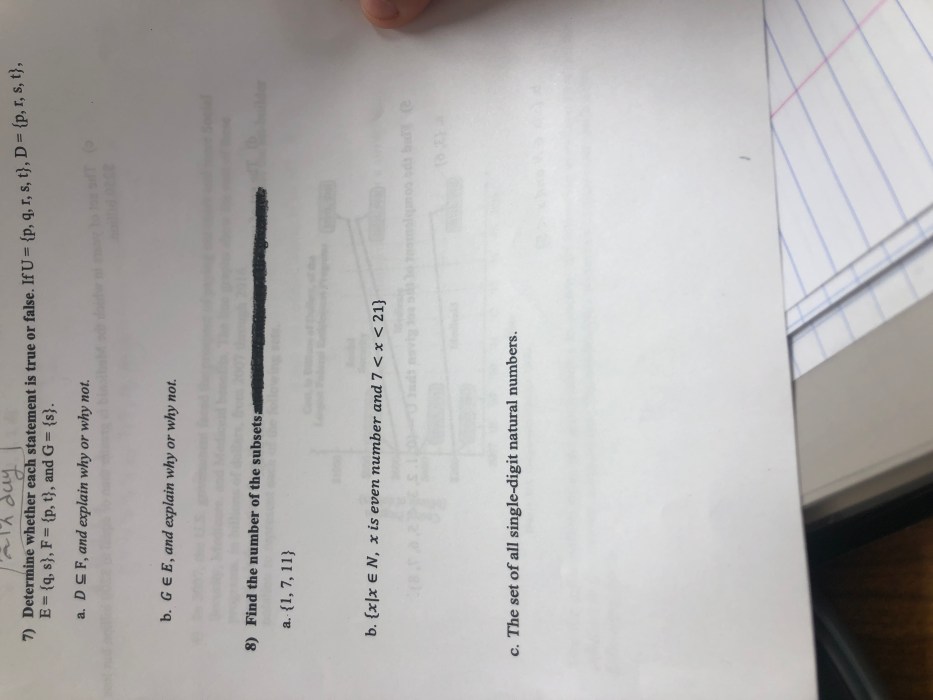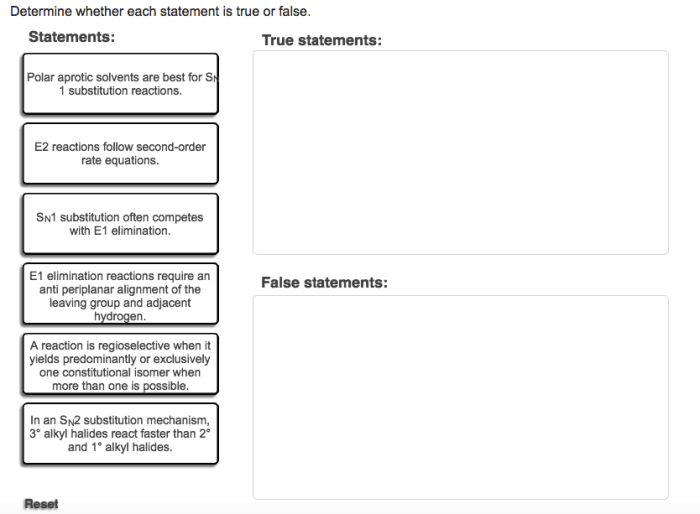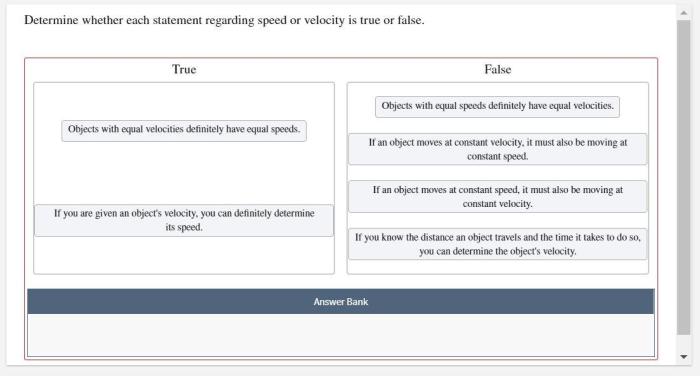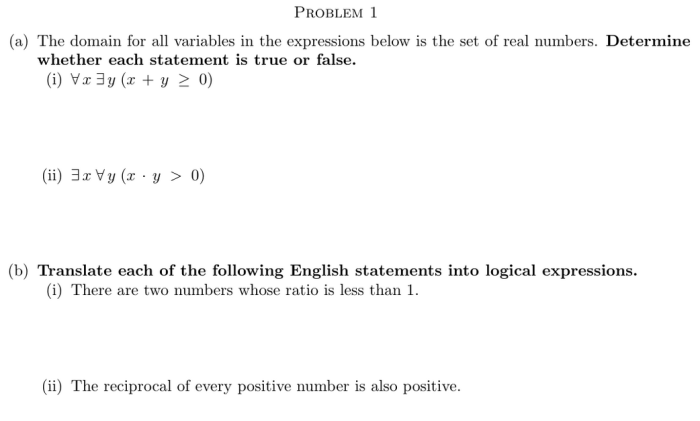Determine whether each statement is true or false. – In the realm of knowledge and inquiry, the ability to determine whether a statement is true or false is a fundamental skill. It allows us to navigate the complexities of information, discern facts from falsehoods, and make informed decisions. This comprehensive guide delves into the intricacies of truth determination, providing a systematic approach to evaluating the validity of statements.
By exploring the criteria for truthfulness, common pitfalls, and various methods for truth evaluation, we empower ourselves to critically assess information, unravel logical fallacies, and mitigate biases that can cloud our judgment. Join us on this enlightening journey as we illuminate the path to discerning truth.
Determining Truth Value of Statements

Determining the truth value of a statement is a crucial skill in critical thinking and reasoning. It involves evaluating the validity of a claim based on available evidence and logical reasoning. To determine the truth value of a statement, consider the following criteria:
- Factual Accuracy:The statement must align with verifiable facts or reliable sources of information.
- Logical Coherence:The statement should not contradict itself or established logical principles.
- Empirical Evidence:The statement must be supported by empirical evidence or observational data.
Common pitfalls in determining truth value include:
- Confirmation Bias:Tendency to seek information that confirms existing beliefs.
- Overgeneralization:Drawing conclusions from limited evidence.
- Circular Reasoning:Using the statement itself as evidence to support its truth.
Commonly Asked Questions: Determine Whether Each Statement Is True Or False.
What is the most reliable method for determining the truth value of a statement?
The most reliable method depends on the nature of the statement. Empirical evidence is crucial for scientific claims, while logical analysis is essential for evaluating deductive arguments.
How can we avoid common pitfalls in determining truth value?
Be aware of logical fallacies, cognitive biases, and emotional influences. Carefully examine evidence, consider alternative perspectives, and seek independent verification.


